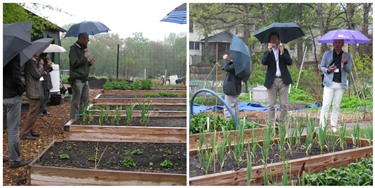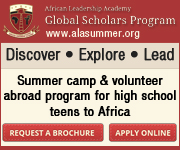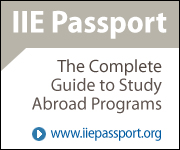
Global Opportunities for Teachers Newsletter - Japan-U.S. Exchange and More!
|
On April 26, 2014, a group of 24 K-12 Japanese teachers arrived in Washington, DC as participants in the Japan-U.S. Teacher Exchange Program for Education for Sustainable Development (ESD). The teachers attended an orientation in Washington, DC and visited schools in the DC area offering ESD-related curricula.
 After the orientation, the teachers traveled to U.S. host cities. Twelve of the teachers visited Miami, FL, and the other 12 visited Nashville, TN. In their respective host cities, the teachers visited local K-12 schools and other ESD resource sites and participated in a two-night homestay. The teachers enjoyed learning about the programs being implemented in the U.S. and learned about activities that could be implemented in their schools back in Japan. Following the host city visits, the 24 Japanese teachers were joined in San Francisco by the 24 U.S. participants for a three-day joint conference focused on the collaborative development of ESD curricula.
 In June 2014, the 24 U.S. participants will travel to Japan to visit Japanese schools focused on ESD. The two groups of teachers will meet in Japan for another joint conference where they will solidify relationships and collaborations begun in San Francisco.
The Japan-U.S. Teacher Exchange Program for Education for Sustainable Development (ESD) provides 24 Japanese and 24 U.S. teachers and administrators with the opportunity to travel to the other country to learn about ESD efforts and strengthen ESD curricula in both countries. The program is administered by Fulbright Japan and jointly funded by the Bureau of Educational and Cultural Affairs at the U.S. Department of State and the Japanese Government’s Ministry of Education, Culture, Sports, Science and Technology.
National Geographic is excited to announce the official launch of its brand new community for educators, The Geo-Educator Community. The Geo-Educator Community provides a space for geo-educators to share resources, collaborate on projects, learn from each other and give support.
National Geographic defines a geo-educator as an educator working to improve young people’s understanding of the world.
Geo-educators can join the community through a variety of online platforms including Twitter, Facebook, and the secure educator site, Edmodo. The community has been live for over three months and already hosts vibrant discussion ranging from how geo-educators are getting students outside, involved in community service projects, and connected to classrooms around the world. Geo-educators are also engaged in serious discussion on how to successfully implement geo-education across the country and around the world.
Deadline Extended for Teachers: June 2, 2014 IIE is seeking article submissions from K-12 teachers that highlight best practices and explore bold new ideas for encouraging U.S. students to study abroad for its fall edition of the IIENetworker magazine, "What Will it Take to Double Study Abroad?" In order to make study abroad an essential part of what it means to be educated, student and family expectations must be addressed at a much younger age. Teachers are key influencers who can help students understand the importance of global awareness early on and inspire them to be curious about and engaged in the world.
Proposed articles should identify and examine ways to educate students about the value, relevance, and necessity of international education and study abroad opportunities and to provide them with practical tools, advice, and resources. Articles that address expanding diversity in race and ethnicity, academic disciplines, and gender are strongly encouraged.
|
www.iie.org/iienetwork • Member website of the Institute of International Education
© 2025 Institute of International Education. All rights reserved.
© 2025 Institute of International Education. All rights reserved.


